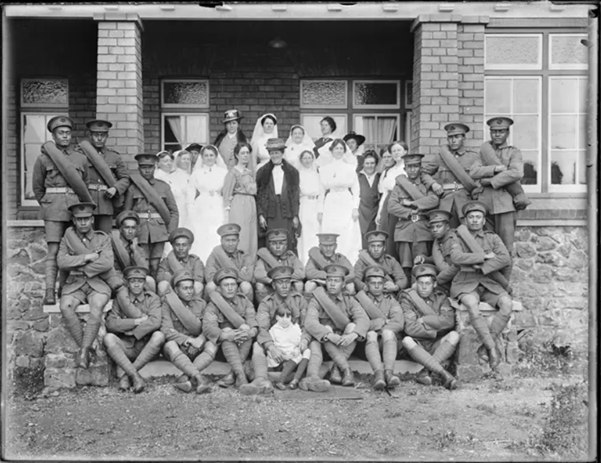Facts and figures
The ‘Know Your Region’ series is designed to support unit and individual professional military education on the Indo-Pacific region. It’s important for all serving members of our military to have a foundational knowledge of the countries and issues in the Indo-Pacific.
On this Page:
- Summary
- WWI
- WWII
- Post-War Military and Security
- Modern Security and Regional Cooperation
- Response to Natural Disasters
Summary
Niue played a significant but often overlooked role in military operations during both World Wars. Despite its geographical isolation and small population, the people of Niue demonstrated their bravery and commitment to international peace and security when they were called upon. Since 1974, Under Niue’s Constitution, New Zealand is responsible for Niue's defence and surveillance of its Exclusive Economic Zone (EEZ). While Niue does not have a standing military, participation in regional forums provides the local government with a voice to address regional security issues.
World War I
During World War I, Niue contributed manpower to the New Zealand Expeditionary Force, marking one of its earliest involvements in global military conflicts. In 1915, 150 men from Niue volunteered to serve, which was a remarkable number considering the island’s population at the time was fewer than 5,000. These soldiers were sent to Egypt and later France, where they served alongside other Pacific Islanders in non-combat roles, primarily labour and logistics.
The Niuean soldiers faced many challenges such as language barriers, a lack of military experience, and a harsh European climate. Sadly, most succumbed to illnesses such as pneumonia and dysentery despite not being in combat, due to a lack of immunity to foreign diseases.

World War II
Niue’s involvement in World War II expanded on its earlier contribution. Although no battles occurred on Niuean soil, the island’s location made it a valuable asset for the Allies. The local population supported the war effort in various ways, including providing resources and volunteering for service. Approximately 80 Niuean men joined the New Zealand Defence Force during the war. Many served in labour and construction units across the Pacific, establishing supply lines, airstrips, and other logistical networks essential for repelling Japanese forces. To enhance local defences, a small militia was established on Niue. This local force was composed of volunteers who patrolled the island’s coastline to monitor for potential enemy activity and reassure the community.
Post-War Military and Security
After World War II, Niueans who had served returned to their homeland. Unlike some Pacific nations, Niue did not establish a formal military force. Instead, New Zealand retained the responsibility under the Free Association agreement. The arrangement has allowed Niue to focus its limited resources on development while relying on New Zealand for defence.
In recent decades, Niue’s security has focused on regional cooperation. The island participates in the Pacific Islands Forum and the Pacific Maritime Security Program, addressing issues like illegal fishing, transnational crime, and natural disaster response. Under the program, Niue has received modern patrol vessels and technical training to enforce its Exclusive Economic Zone (EEZ). These efforts have been vital for safeguarding the island’s fishing grounds, which are a critical economic resource.
Response to Natural Disasters
Niue is highly vulnerable to natural disasters such as cyclones, tsunamis, and rising sea levels. The Niue Police Force, which also functions as the island’s primary security agency, plays a critical role in disaster response. The police coordinate evacuation efforts, provide emergency communication, and manage recovery operations in collaboration with regional and international partners. Australia and New Zealand are on hand to provide technical expertise, financial support, and rapid deployment of aid when disaster strikes.
For more information on Niue Military, see resources below:
Articles:
Know your region
Know Your Region series gives you a shortcut to understanding other nations in the Indo-Pacific region.









